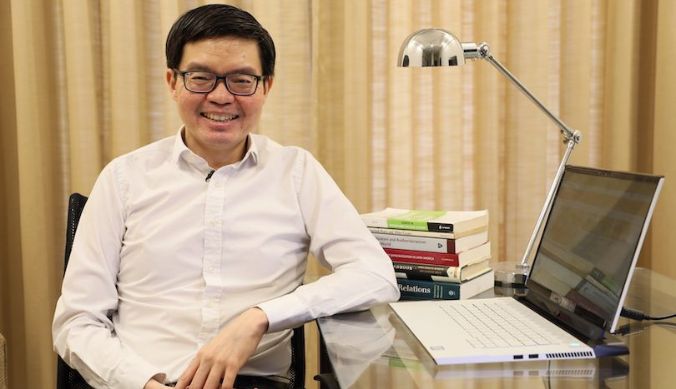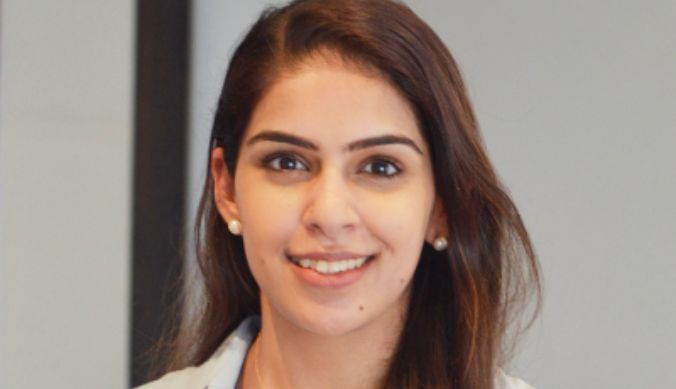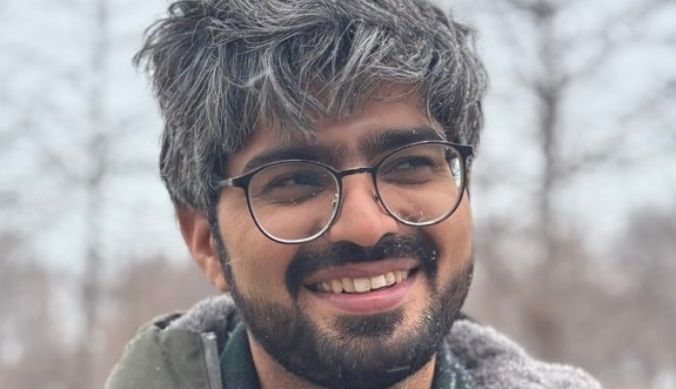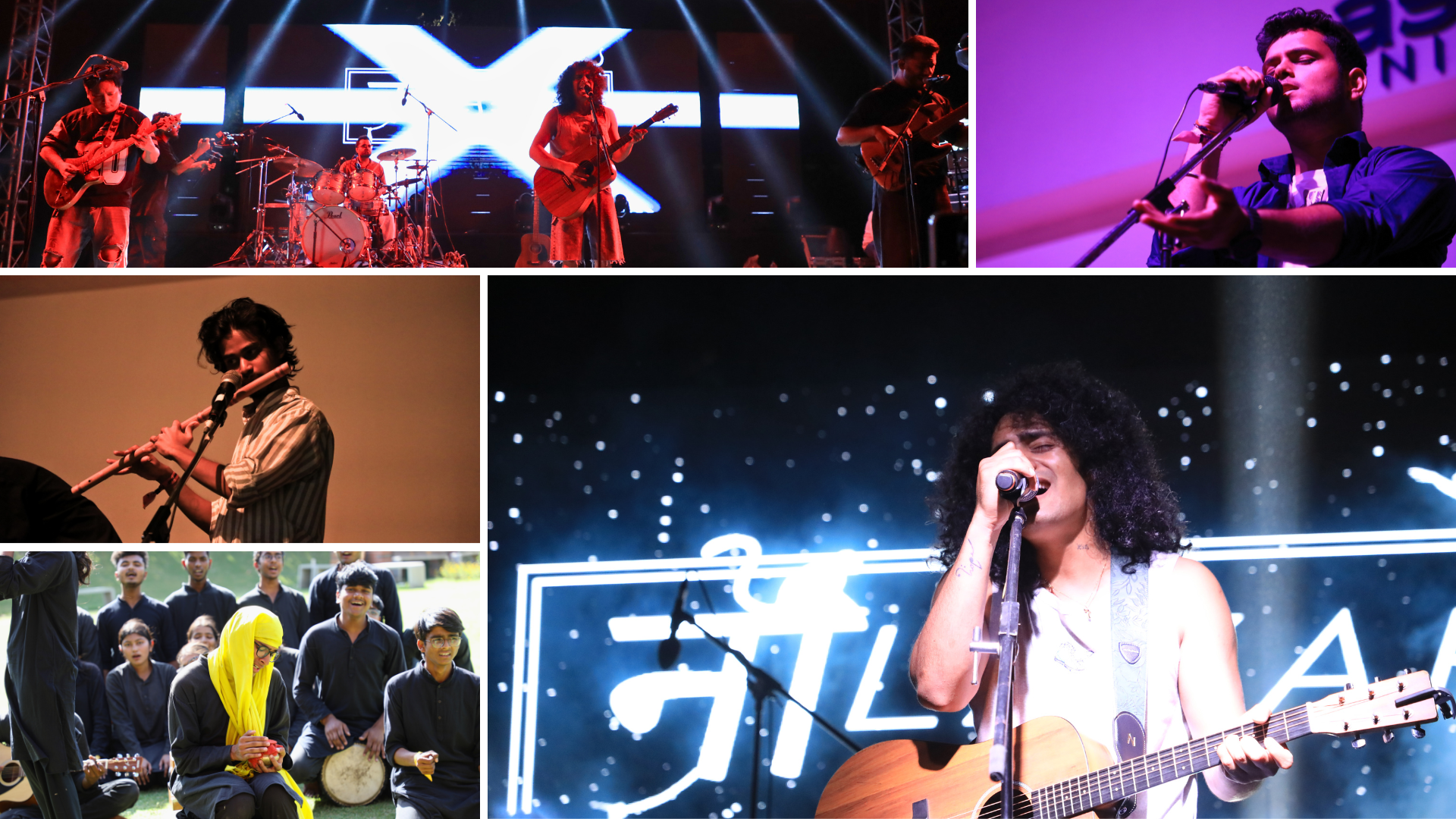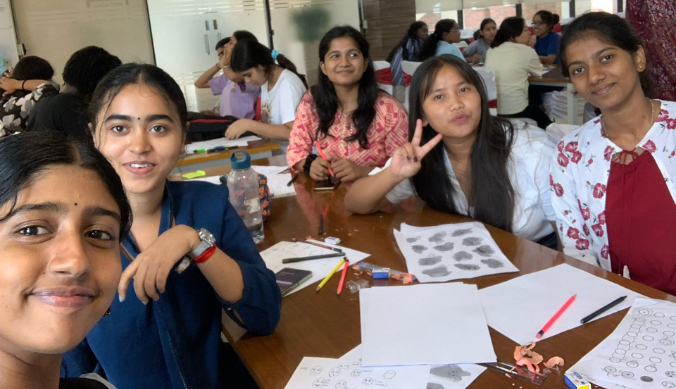Swimming Against the Odds: The Inspiring Journey of Roshni Patra
Learn about the extraordinary achievements of Roshni Patra, an athlete with visual impairment, who secured gold in the Para Swimming Nationals
Roshni Patra, a first-year psychology student at Ashoka University and an athlete with visual impairment, won gold in the 50-meter freestyle category at the 23rd National Para Swimming Championship held on March 30th, 2024.
Diagnosed with visual impairment shortly after birth, Roshni Patra’s story exemplifies the power of perseverance. Despite her vision gradually deteriorating to its current state of complete impairment, Roshni’s spirit remains undimmed. Her unwavering dedication and talent have shone through, leading to an impressive collection of eight gold medals for Maharashtra across four national championships.
Our recent conversation with Roshni explored her accomplishments, athletic journey, the challenges she has overcome and how Ashoka University has supported her in pursuing her aspirations.
Tell us a bit about your childhood.
I was diagnosed with visual impairment when I was three to three and a half months old. This news came as a shock to my parents as they had absolutely no idea how they were supposed to proceed with my education or otherwise. They enrolled me in a regular kindergarten because I had a little bit of vision to manage classes. I was able to read large fonts written in sketch pen until Grade 3. However, as my vision deteriorated, we connected with the National Association for the Blind in Mumbai and I received training in braille. Slowly and gradually, I shifted to using a laptop, which made my life easier as my vision deteriorated further.
What led you to take up swimming?
I was into music when I was seven or eight years old, but I had very limited options when it came to fitness. Playing with others in society wasn’t easy for me, so I often preferred to stay indoors. First, I started with rope Mallakhamb and continued it for two-three years, but I wasn’t interested in it, so I would make up reasons not to go.
I was extremely scared of water, and everyone, including my parents and teachers, knew about my fear. So, I was very resistant when they asked me to try out swimming. However, one of my teachers, Sampada Palnitkar, completely changed my perspective. She started swimming herself first, and then she motivated me to try it out. Despite my initial apprehension, I decided to give it a try. I managed to find a trainer who had previously worked with some of my friends. While the fear of water, especially diving, was still there, I enjoyed the refreshing feeling of being in the water after a long day of classes and music practice
What motivated you to start swimming competitively?
I started swimming in 2017 with the incentive to work on my physical fitness and stay fit. But later, I learned about competitions, which made me think that if I am dedicating time to the sport, why not just try out competitions, regardless of whether I win or not. I participated in a district-level event in Thane. I remember I was so afraid, nervous, and anxious, but then the competition went well, and I won two gold medals. That’s when I decided that if I am able to achieve success, I should continue participating. In 2018, I participated in my first state-level event, and there too, I won a gold medal. Nationals did not happen until 2021.
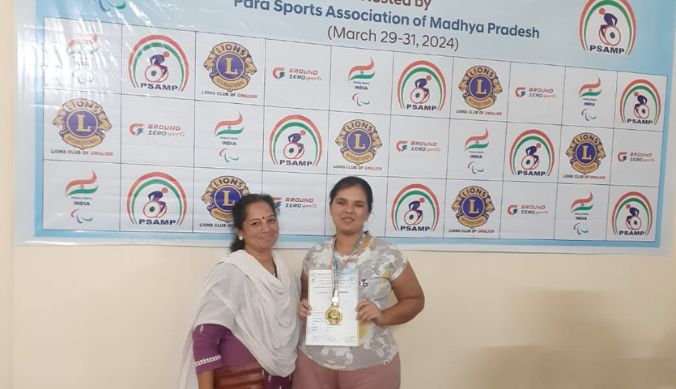
Can you elaborate on some of the specific challenges you encountered during training and competition, and how you have adapted to overcome them?
Swimming can be difficult for visually challenged individuals. For instance, there is always a risk of hitting your head or other body parts on the pool walls. It is challenging for any person with a disability to find an instructor, but for female students, it is even more difficult. This is because most of the coaching community is dominated by men, and finding a female coach can be a challenge. Men find it awkward and are not very comfortable teaching us because swimming training often requires guidance through physical touch. I am really thankful to my coach, school, and university for providing me with the required support in this respect. I hope every individual in the country is able to access these opportunities.
How did you learn about Ashoka University?
I learned about Ashoka in Grade 12 during a mentorship program. Initially, I thought I would try out a summer semester at Ashoka because finances were a challenge. I never imagined that I would even consider Ashoka for my undergraduate studies. However, during the mentorship program, in a one-on-one conversation, it was suggested that the liberal arts system would be better for me. That’s when we started considering Ashoka. I also learned about the financial aid system, which has been very helpful for me. Without the financial aid, I wouldn’t have been able to attend Ashoka as I received 100% financial aid on my tuition fees.
How has Ashoka University supported you in your sporting journey?
I am grateful to Ashoka for providing me with a scholarship and enabling faculty and infrastructure to pursue my aspirations. Ashoka has a pool and all the required sports facilities and equipment. The university campus is designed to accommodate the needs of students with special needs, including visual impairments. It has braille signage, highlighted uneven areas for those with low vision, accessible washrooms and dorm rooms, audio-enabled elevators, dedicated trainers for sports and gym activities, and accessible classrooms and learning content. Additionally, the university has introduced a newly built mobile application, as well as has campus buddies, helpers, and mobility training sessions to aid students with campus navigation.
Besides this, the people here are friendly, and I have found it easier to communicate with them. I received a lot of help from my friends and seniors at Ashoka. They helped me navigate around the campus, and of course, my campus buddy was always there, giving me the confidence to move out of the campus on my own. I now go to Delhi on my own and recently traveled to Gwalior and even to my hometown, Mumbai, on my own.
How has the Office of Learning Support (OLS) contributed to your journey?
The Office of Learning Support at Ashoka has played a significant role in my journey, both academically and otherwise, particularly in navigation. The first major assistance I received was through the campus buddy programme. Even before I inquired about it, I was informed that I would be provided with a campus buddy to assist me with navigation and other matters. I was also assigned a Didi from the housekeeping team, who helped me with the upkeep of my room and manage my daily chores, but now I manage most of my work on my own.
Subsequently, the OLS team has been instrumental in addressing all my academic requirements and keeping me informed about campus activities in case I miss anything. Academically, the team helps me communicate with faculty if I encounter any accessibility issues, ensuring that I never have to wait or miss any deadlines. The weekly check-ins with them helps me to stay up-to-date with my academic work. They also ensure that all lecture notes and presentations are available to me in the accessible format.
Besides swimming, do you have any other interests?
I like to learn new things in my free time and enjoy music. Chess is something that I have been interested in since my childhood. My cousin taught me how to play when I was 4 years old. We also had chess as a subject in school. My school’s chess teacher discovered that I might be interested in chess, so I played in two tournaments at school in Grade 4, and then I started playing in zonal tournaments with sighted people.
It was in 2017 that I was introduced to blind chess. I have a friend who is an international chess player, and then I started participating in local blind chess tournaments. In 2021, I played in my first state-level chess tournament. I also participated in a women’s national championship in 2022, where I received recognition as the best junior player. I aspire to become an international chess player and represent India at the Asian Para Games.
Another art I have been trying to excel at is voice acting. I received training from voice artist Sonal Kaushal, who has been the official voice of Doraemon, and many other characters. I also organised an online event called “Voice Hunt,” which was open to all aspiring voice artists and streamed live on YouTube. Additionally, I released my first audio movie on March 24, 2024, where I worked as a lead actress, audio editor, and sound designer.
Study at Ashoka









